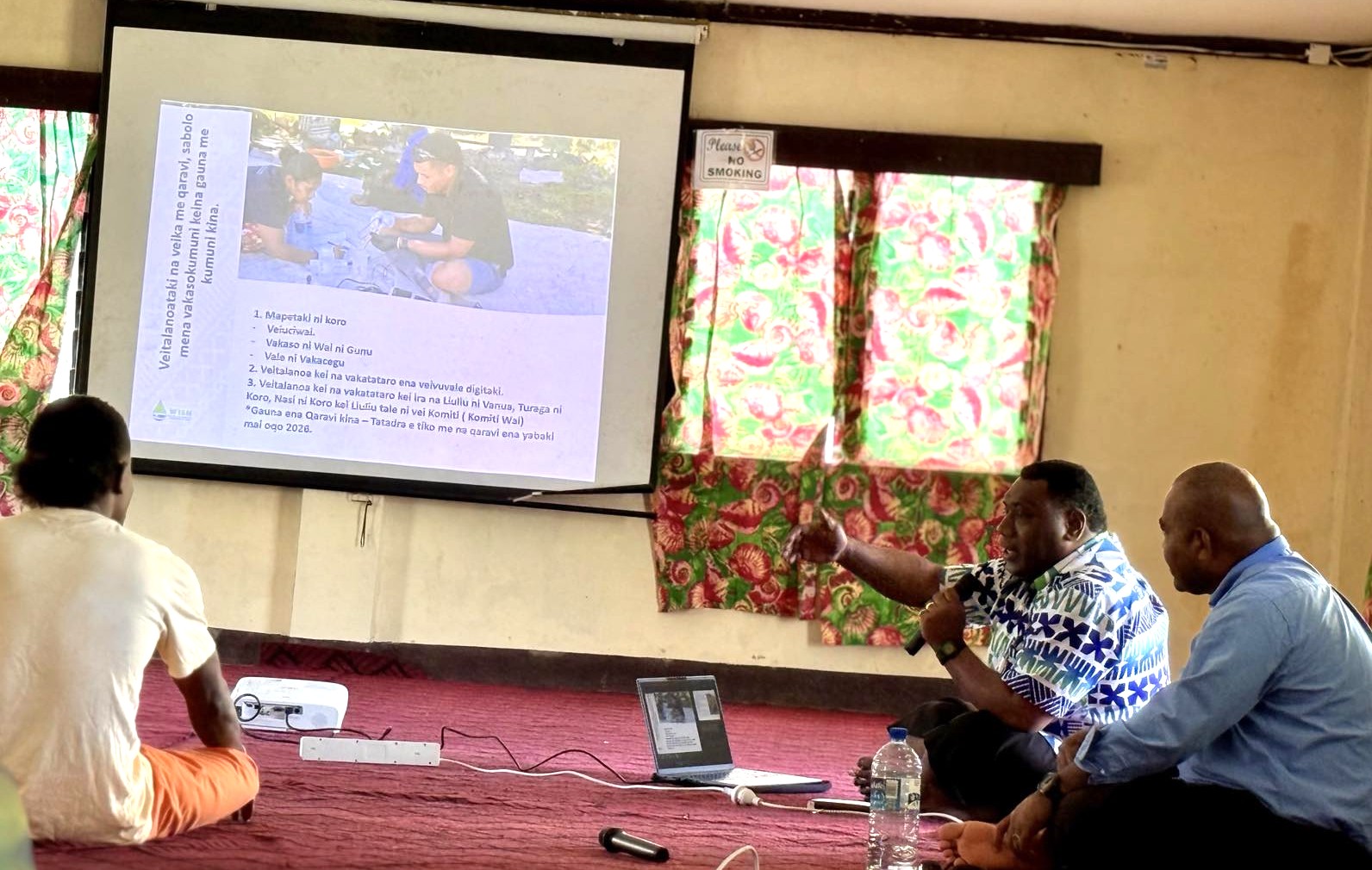At the core of the WISH Pacific Project’s ethical engagement is the Free, Prior, and Informed Consent (FPIC) process. To understand its importance, we must first look at the foundations of Planetary Health in the Pacific – a framework built on the deep connection between human well-being and environmental health.
In Fiji and across the Pacific, culture and environment are inseparable. Fijian life is shaped by traditions, customary governance, and relational community structures. When projects use a purely Western scientific lens, they risk failing because they overlook the very systems that govern daily decision-making. The WISH Project’s approach was powerful in its simplicity: localize Planetary Health, root solutions in Indigenous practices, and let change grow from within.
The WISH Project was designed to address the drivers of ill-health by combining ecosystem-based interventions with water safety and sanitation measures. Success required a whole-of-government, whole-of-community approach, bringing together partners from iTaukei Affairs, Health, Rural Development, and others.
While technical interventions are vital, how we engage is paramount. The Ministry of iTaukei Affairs required written community consent via FPIC. Lacking detailed guidance, we co-designed a robust process that generated value far beyond a simple signature.
FPIC is essential because it:
- Recognizes and respects the rights of Indigenous communities.
- Empowers communities to discuss and set conditions for project design and implementation.
- Builds trust and respect by ensuring active, inclusive participation and proper information sharing.
- Reduces risks and lays the groundwork for future collaboration.
This ethical commitment was extended to all communities, including those of Fijians of Indian descent, ensuring every key stakeholder fully understood and consented to the project’s direction.
To ensure genuine, ethical engagement, we co-designed and rolled out a 3-Stage FPIC framework over five months across the communities. This process moved beyond simple consultation, embedding respect and participation at every level.
The three phases were:
- Phase 1: Engaging Traditional Leaders – Gaining formal entry and consent from village councils and chiefs, respecting the correct hierarchical protocols.
- Phase 2: Awareness Consultations – Joint presentations with government partners on project objectives, risks, and benefits, ensuring full information disclosure.
- Phase 3: Collective Consent – Communities formally made their decision, which was often a “Yes, with conditions.”
This conditional consent was key. Of all the households that consented, many attached requirements for additional support, such as infrastructure improvements, stronger resource management, and – crucially – that all research findings be shared back with them first. By honoring these conditions, the project demonstrated respect and accountability, which led directly to community ownership.
The FPIC framework built a bridge between traditional governance and scientific assessments, proving that consent is not a transaction, but a long-term relationship.
The impact of this approach included:
- Strengthened Local Governance: Communities enhanced their water and sanitation committees.
- Empowered Leadership: They developed locally led Water Safety and Sanitation Plans based on their own community profiles and improvement strategies.
- Increased Legitimacy: By working through customary governance systems, we built lasting trust and legitimacy.
Obtaining FPIC enabled communities to lead decision-making, respecting their autonomy and traditional knowledge, making interventions stronger and more sustainable.
Working within community systems brings realities that must be embraced, not feared. We see these not as obstacles, but as considerations that guide a better way to engage:
| Consideration | Description | Solution-Oriented Mindset |
| Hierarchy of Leadership | Engagement must follow the layered structure of traditional chiefs, church leaders, and government. Bypassing a leader can break community trust. | Acknowledge identity and respect by following the correct order of protocols. |
| Government Staff Turnover | High staff changes require constant re-explanation and orientation, weakening consistency. | Implement strong documentation and continuity plans that outlast individuals. |
| Community Commitment | Funerals, weddings, and religious events take precedence over external engagements, reflecting the heart of community life. | Build patience and flexibility into timelines; respect these priorities by adjusting schedules. |
| Cultural Nuances | Subtle expectations regarding tone, who to address first, and non-verbal cues. | Practice cultural humility –ask, observe, and adapt to form deep bonds of trust. |
These realities remind us that the work is always people first. When people feel respected, engaged, and valued, lasting change becomes possible.
The WISH Project experience demonstrates that Indigenous consent frameworks are vital for Planetary Health. Customary governance strengthens legitimacy and ownership. When science and culture walk together, partnerships are respectful, communities are empowered, and both people and ecosystems thrive.

